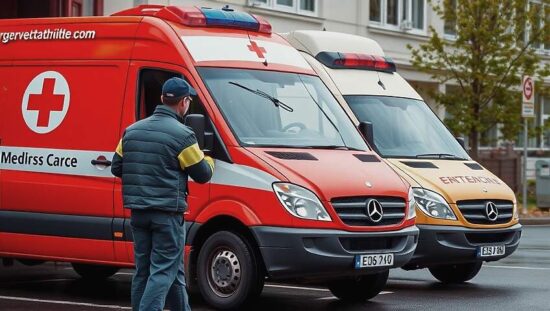The largest provider of emergency services in Germany is calling for a reform of the emergency care system in the face of dwindling healthcare on the countryside and increasing responsibilities for civil protection. According to a demand paper from the German Red Cross (DRK), published in the “Süddeutsche Zeitung” (Thursday edition), only through a wide-ranging reform can the Red Cross meet its legal obligation “to adequately deal with crises, catastrophes, the V-fall and civil emergencies.”
“An overall reform is necessary because the emergency services are increasingly reaching their limits due to increasing call volumes and are facing new challenges” said DRK President Gerda Hasselfeldt to the SZ. According to data from the statutory health insurance (GKV), the number of emergency service calls has risen dramatically from around eight million in 2001 to more than 14 million in 2022.
Longer distances are a major challenge in rural areas, said Philipp Wiesener, head of the National Aid Society at the DRK. The solution proposed by the DRK is a mix of reforming competencies and financing. The equipment of the extra-clinical emergency care must “be based on operational needs and requirements” according to the demand paper and must not depend on the financial situation or re-financing by health insurance companies.
Moreover, the paper suggests utilizing the competencies of emergency medical technicians more effectively. According to the paper, emergency medical technicians could handle more calls without a doctor. Alternatively, video-connected emergency doctors, also known as tele-emergency doctors, could support emergency services.
Even Bundestag lawmakers are calling for a swift reaction from the new government. “Not only as politicians, but also as an experienced emergency medicine doctor, I can honestly say: The emergency services in Germany have become a crisis themselves – in many places, the system is burning up” said the Green health politician Janosch Dahmen. “Patients and staff are suffering equally. Mismanagement and inadequate care have become so severe that the overburdening of emergency care is now literally life-threatening.





